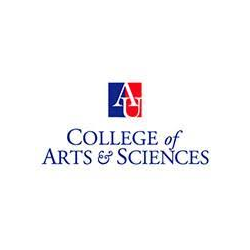
23 Nov PhD Fellowship in Computational Vision at American University, Washington DC.
PhD Fellowship in Computational Vision at American University, Washington DC.
Washington, DC · Full-time
The Xiao Computational Perception Lab at American University, Washington DC, has an opening for an NIH-funded Ph.D. fellowship in Neuroscience (Application deadline Dec 1, 2023). The program is situated in the interdisciplinary Behavior,
Cognition, & Neuroscience Graduate Program at AU.
Overview
The main topic of this PHD is to understand how humans estimate object properties and plan interactions in an immersive multimodal environment using Generative AI and Human Psychophysics. We use a combination of psychophysics, deep learning, generative AI, VR/AR, computer graphics, image acquisition, and volumetric captures. The candidate will receive hands-on training in one or several of these areas.
Besides this topic, we also study the visual development of material and object perception in infancy and early childhood through a collaboration with Laurie Bayet in the Department of Neuroscience. In addition, Xiao lab also studies computer vision and collaborates with researchers at Virginia Tech, NIH/NEI, George Mason University, University of Giessen, and the University of Tokyo. These collaborations allow the candidate the opportunity to work on a variety of related topics (see below in Our Lab and Facility).
Your role in research:
- Performing research on mechanisms of human perception and computational modeling of perception using a combination of psychophysics, machine learning, computer graphics, and VR/AR methods
- Collaborating with computer scientists and neuroscientists in and outside the lab
- Multimodal data analysis
- Implementing and evaluating deep learning models
- Preparing and presenting research at conferences and peer-reviewed publications
Qualifications:
- The candidate should have completed a Bachelor’s degree in quantitative psychology, vision science, neuroscience, cognitive science, computer science, physics, engineering, or a related field.
- The candidate should be interested in research on perceptual mechanisms and human behavior.
- The candidate should have solid programming skills in Python. Experience with statistical methods (linear models, multivariate analysis, etc.) is a plus.
- Prior experience working in a research lab is a strong plus.
Our Lab
Prof. Bei Xiao has a primary appointment in computer science but is a core member of the center of behavioral neuroscience.
The Lab is located in a state-of-the-art building that houses the departments of computer science, physics and applied math and a design and build lab. The lab has high-performing GPU workstations, tactile devices, VR headsets, 3D printers, and access to an NSF-funded Volumetric Capture Studio. We are part of both the Computer Science Department and the Center of Behavioral Neuroscience and collaborate with faculty from both departments. The student can take courses in both departments and attend research seminars across campus.
Washington, DC, is the US capital and has a vibrant scene of computational cognition and computer vision research (e.g., NIH/NEI/NIMH, NIST, Johns Hopkins University, George Washington Georgetown University, and the University of Maryland).
Xiao Lab studies both human and computer vision with an emphasis on material perception and recognition. The lab currently has a few ongoing research projects:
- Learning latent representation of human perception of material properties
- Material and object perception in infants and children with behavioral and EEG methods
- Volumetric Capture
- Uncertainty estimation in few-shot learning in text classification
- Prediction of clinical trial outcomes with human experts and machine learning models.
How to apply
Prospective graduate students should contact me directly and are required to apply to the Behavior, Cognition, & Neuroscience (BCaN) Graduate Program at AU . More details and the graduate application at:
- https://www.american.edu/cas/psychology/behavioral/requirements.cfm
- More details about Xiao lab: https://sites.google.com/site/beixiao/
- More details about the AU neuroscience department: https://www.american.edu/cas/neuroscience/faculty.cfm
To inquire about the position (ideally well before the application deadline), please submit your application, including a CV, a cover letter describing your background, experience, and motivation (in PDF format), and the names of two references agreed to be contacted. International candidates need to get a TOFEL score above 100. The deadline for the application is December 1st, 2023.
Representative Recent Publications:
- Liao, C, Sawayama, M, Xiao, B. (2023) Unsupervised learning reveals interpretable latent representations for translucency perception. PLOS Computational Biology. Feb 8, 2023. PDF. <https://journals.plos.org/ploscompbiol/article?id=10.1371/journal.pcbi.1010878>
- Zhang, X, Lei, S, Alhamadni, A, Chen, F, Xiao, B, and Lu, CT. (2023) CLUR: Uncertainty Estimation for Few-Shot Text Classification with Contrastive Learning. ACM SIGKDD 2023. PDF <https://dl.acm.org/doi/10.1145/3580305.3599276>.
- Liao, C, Sawayama, M, Xiao, B. (2022) Crystal or Jelly? Effect of Color on the Perception of Translucent Materials with Photographs of Real-world Objects. Journal of Vision. PDF <https://jov.arvojournals.org/Article.aspx?articleid=2778489>.
—
Bei Xiao, PhD
Associate Professor
Computer Science & Center for Behavioral Neuroscience
American University, Washington DC
Homepage: https://sites.google.com/site/beixiao/
Please click here to apply.


Sorry, the comment form is closed at this time.